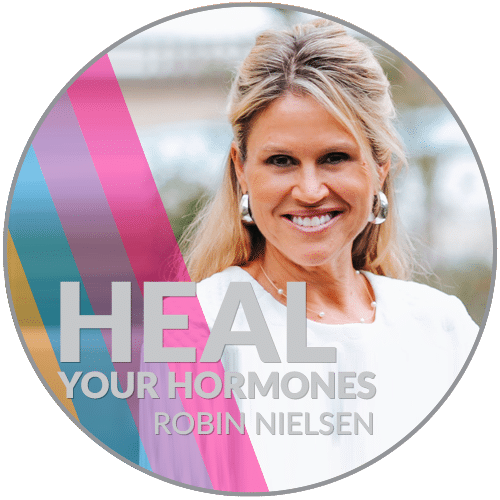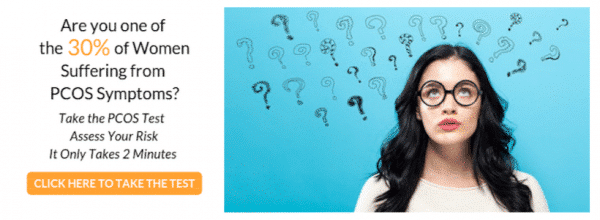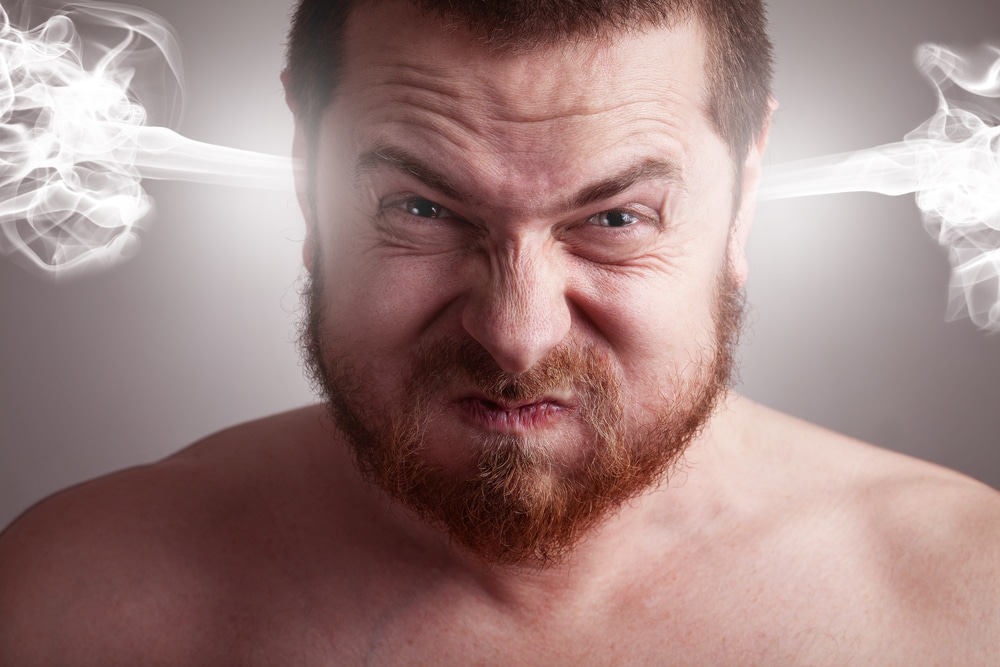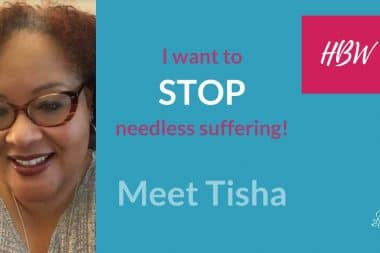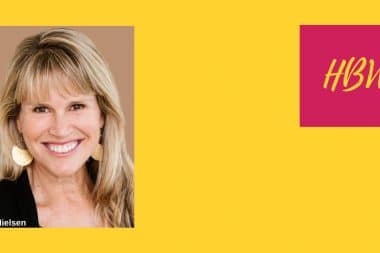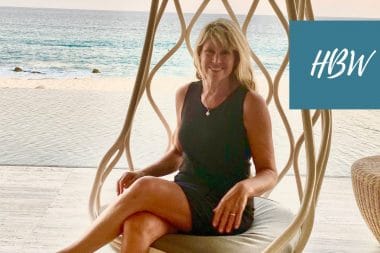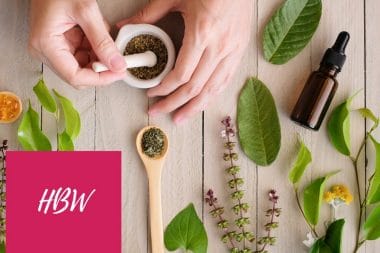Is a hysterectomy a solution for polycystic ovarian syndrome (PCOS)? The symptoms of PCOS and hormonal imbalance can be awful and sometimes downright devastating so anything that alleviates some of these symptoms might seem welcome. With PCOS the ovaries can produce excess male hormones called androgens, and they can grow small fluid-filled cysts inside that may cause pressure, bloating, swelling and even pain. These excess male hormones create symptoms like acne, decreased breast size, increase in body hair in a male pattern, amenorrhea (lack of menstrual periods), and oily skin. They can also cause a deepening voice and thinning hair and hair loss at the front of the scalp on both sides of the head.
And then there’s heavy bleeding caused from low progesterone levels, one of the classic signs of PCOS.
Who wouldn’t want a quick fix to these symptoms?
Patient beware. It may seem that if we remove the body parts that seem to be causing the discomfort that all will be well. Read on.
What is a Hysterectomy?
A hysterectomy is a very invasive surgical procedure where the uterus is removed and may include one or both ovaries. It also included the removal of the cervix as a routine procedure, but now is being left intact by many physicians. Surgery is never simple and never without potential serious side effects both short and long term. The idea behind the surgery is that once the uterus and ovaries are gone, the symptoms of PCOS will simply vanish. Not so. Not at all.
Good Reasons to Keep Your Uterus, Cervix and Ovaries (reference: The Wisdom of Menopause, Dr. Christiane Northrup)
- The uterus, cervix and ovaries work together your entire life (and share much of the same blood supply) to provide your body with hormonal support.
- Ovaries are the female equivalent of the male testes, producing much-needed male hormones essential for normal sex drive.
- The uterus, cervix and ovaries are needed for the long transition into menopause when the adrenal glands begin to take over.
- During orgasm the uterus undergoes rhythmic contractions, contributing to the depth of sexual pleasure that many women experience during lovemaking.
- The uterus, cervix and ovaries are responsible for pheromone secretion which may increase a woman’s sexual attractiveness.
- The cervix (the lower portion of the uterus that protrudes into the vagina) makes up part of the pelvic floor, helping to support the bladder.
What Can Happen When You Remove Your Uterus, Cervix and Ovaries (reference: The Wisdom of Menopause, Dr. Christiane Northrup)
- When the uterus is removed and the ovaries are left in, the function of your ovaries are affected. Up to 50% of women who have had hysterectomies lose the function of their ovaries earlier than they normally would — and they go through menopause earlier, increasing their risk of osteoporosis and heart disease.
- Female castration occurs when the ovaries are removed (according to medical literature). The ovaries are equivalent to the male testes and some studies have shown that up to 25% of women have decreased sex drive after the removal of the ovaries.
- Menopause occurs instantly (not over the six to thirteen years with everything in tact) which is a shock to the hormonal system.
- Orgasm may not be as satisfying anymore.
- Urinary incontinence is an increased risk because the bladder nerves can be damaged.
Why Not a PCOS Hysterectomy?
PCOS is more than just a structural problem with our bodies. At the very foundation of PCOS is hormonal imbalance caused from insulin resistance. Insulin resistance causes inflammation and all the symptoms of PCOS that we’ve come to understand so much better.
We suffer from mood swings, periods of severe inflammation, and insulin resistance that cause drastic changes in our waistline. In addition, studies have proven that a hysterectomy will cause all of these conditions to likely worsen after we have undergone the dramatic, irreversible procedure.
A hysterectomy throws our bodies into a state of hormonal deficiency. The hormone deficiency is immediate and drastic, unlike the gradual way our bodies eventually slow down the production of estrogen and progesterone as we go through menopause. These hormones not only control our reproduction cycles, but also offer protection against serious diseases.
As women living with PCOS, we are all aware of how insulin resistance affects our bodies. When our systems are not using insulin effectively, there’s a buildup of glucose in our blood. Insulin resistance leads to weight gain and is a precursor to diabetes. Worse yet, insulin resistance has been linked to causing other serious medical conditions such as diabetes, hypertension, endometrial cancer, and breast cancer. The bottom line is that for our own well being, we need to get insulin resistance under control and studies have proven that women who have hysterectomies still suffer from insulin resistance post-procedure.
With PCOS, we suffer from chronic inflammation. Our white blood cells work overtime as a way to treat all the symptoms our bodies are experiencing on a daily basis. A domino effect takes place where our immune system is always on high alert and not healing us in the ways it needs to be. Hysterectomies do not stop this inflammation from occurring and we will still continuously experience haywire immune responses.
Along with immune system stress, we will feel emotional stress following a hysterectomy. The hormones that are needed to manage stress and to feel good about ourselves will stop normal production. Serotonin is known as the “feel good” chemical and once a hysterectomy takes place, serotonin levels are no longer regulated. We will go through mood swings and feel as if we are on an emotional roller coaster.
Some PCOS symptoms mimic the symptoms of menopause. A common misconception is that a hysterectomy allows us to skip the side effects of menopause all together. In actuality, a hysterectomy is linked to causing premature menopause. Signs of premature menopause include vaginal dryness, loss of bladder control, skin irritation, insomnia, and mood swings. All of these symptoms come from even more hormone imbalance — mostly the shock to our adrenal glands, not being able to keep up with the hormone demand.
So the real surgery needs to be on the daily choices we make. Because we have all the power to heal!
From the food we eat, to how we move our bodies, the nutrients we take to support better hormone balance, stress and blood sugar management, and a support community that understands us.
Healing With the 5-Element Process
At Insulite Health, we have developed an easy-to-follow 5-element system to help us avoid a hysterectomy. After “doing surgery” on these five areas of your life, you will see huge changes in the way your body looks and feels, for the better. It doesn’t take much time at all.
The five steps include:
- Nutraceutical Solutions
- Food as Medicine
- Movement as Medicine
- Cravings Awareness
- Support Community
At its very basis, our comprehensive plan at Insulite Health involves changing the way we eat, sleep, and move to see transformative results. Following a healthy, nutrient-rich diet plan will feed us what we need to nourish and cure our fragile bodies. Within the plan, there’s also an increased awareness of how to address our cravings — something that is always overlooked in “diet plans”. Carbohydrate addiction is a real and very dangerous thing for PCOS women. With our reliance on carbohydrates for energy, we’re actually zapping our energy stores and worsening our insulin resistance.
Exercise is just as important as diet to our overall health and wellness. A simple exercise program, much different than you might expect, can have a positive and hormone-balancing effect on how your body responds to insulin. Exercise causes the abundance of glucose being stored in our blood to move to the muscles that need it. Walking, Qi Gong, Tai Chi, yoga, and pilates are examples of exercises that will help to lower stress hormones and increase insulin sensitivity.
Science is clear that we need a support network on our path to a putting our polycystic ovarian syndrome into remission. We aren’t invincible and can’t do it all on our own. We need to be able to talk freely about how we are feeling and our concerns about our health. Within our extensive network, we need to connect with others who can offer us personalized coaching on how to heal from symptoms of PCOS. We are each built differently and require different things. What works for one of us, may not work for everyone else.
We have been taught for a long time, that our doctor knows best. If he or she tells us we need a hysterectomy to cure our polycystic ovarian syndrome, our first instinct may be to follow their medical advice. But our health is in OUR hands, and you have all the power to heal. Let’s get started, together, right now. We’re here for you every step of the way.
Why a PCOS Hysterectomy is Not a Cure | PCOS Insulite Health
Sources:
https://www.ncbi.nlm.nih.gov/pubmed/9408743
https://www.womentowomen.com/hysterectomy/symptoms-and-ovarian-function-after-a-hysterectomy/
https://www.ncbi.nlm.nih.gov/pubmed/9408743
https://www.bodylogicmd.com/for-women/hormones-and-depression
https://www.nlm.nih.gov/medlineplus/ency/article/001165.htm
Next Steps
Becoming victorious over the symptoms of Polycystic Ovary Syndrome is not an easy task, but you can overcome your symptoms to live the life you deserve.
It takes strength, courage, and perseverance. It can be challenging and that’s why Insulite Health created the PCOS 5-Element System. It’s a step-by-step process that will help you balance your hormones and reverse PCOS symptoms using our proprietary 5% Solution.
So take the next steps now! Use the links below to learn how to make the changes that will transform your health and your life forever.
- Read more about PCOS
- Take the PCOS Test and assess your risk!
- Learn more about the Insulite 5-Element PCOS Solution
About Insulite Health PCOS.com
Insulite Health, is committed to helping women reverse their symptoms of hormone imbalance. Scientific research has revealed that this imbalance can be a primary cause of many devastating health symptoms. Hormone Imbalance can also underlie the increased risk factors for PCOS (Polycystic Ovarian Syndrome) – a major source of serious diseases as well as cause of excess weight gain, adult acne, unwanted facial hair, depression, anxiety, and heartbreaking female infertility.
©Insulite Health, Inc., pcos.com empowers women with PCOS to transform their lives through a process of healing with the 5-Element PCOS System — the world’s only complete solution for helping women heal from the symptoms of PCOS and hormone imbalance.
